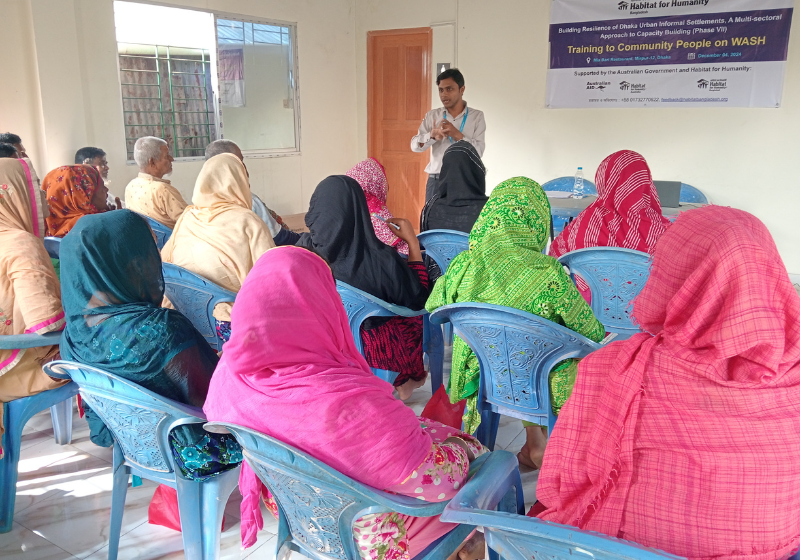The Importance of Including Women in Climate Resilience: 3 reasons why
Climate change is one of the greatest challenges of our time, both at home in Australia, and overseas in our partner countries. Building resilience to its impacts requires diverse leadership and collaborative solutions. Women play a crucial role in driving climate resilience, particularly in vulnerable communities – and why several of our international projects focus on elevating women’s involvement. Here are three key reasons why empowering women contributes to improving climate resilience.
- Empowering Women Improves Resources
Women make up nearly half of the agricultural workforce in developing countries yet often lack the resources and support that men have. When given equal access to education, technology, and resources, women can significantly boost agricultural yields by 20 to 30 percent1. This increase not only improves food security but contributes to sustainable farming practices, which are vital for climate adaptation.
In Bangladesh, we’ve partnered on projects to empower local women through the delivery of livelihood training, including technical and vocational support, further providing the resources and knowledge to advocate for better services and sustainable urban development. Locally, our Social Enterprise, Habitat Women is working to break down barriers in the construction industry to drive equal access to education, training and resources.
- Women Are Key to Building Resilient Communities
In times of crisis, women often lead the way in responding to natural disasters and are usually the first to act in recovery and resilience work, helping to address immediate needs and ensuring that families recover faster. Research shows that communities with women involved in climate adaptation planning are more successful in building long-term resilience. A study of 194 countries found that pandemic responses were systematically better in women-led countries2. Their leadership in these areas makes them indispensable in creating climate-resilient communities that are better equipped to face future challenges.
Overseas, we’re working with Habitat partners and local community to drive gender-inclusive projects that prioritise women’s voices in addressing needs and building climate resilience. Women-led community action groups have been formed to help address shelter vulnerabilities through community-led interventions, such as improving housing and providing Water, Sanitation, and Hygiene (WASH) facilities.
- Climate Change Exacerbates Gender Inequality
Climate change impacts everyone, but women—especially those in poverty—often bear the brunt. In many cultures, women are responsible for securing food, water, and energy resources for their families. In many developing countries, climate change and natural disasters can force women to travel longer distances for these essentials, which increases their exposure to risks and reduces their time for income-generating activities. By addressing climate resilience through a gender-equal lens, we not only tackle the rising risk of climate-related disasters, but we also help to reduce the cycle of inequality and poverty that women in these more vulnerable communities experience.
In Cambodia, we’re partnered to run GENDER-Build, a specific project that is focused on improving housing conditions and increasing climate resilience within communities to help minimise the risk posed to women during natural disasters.
Empowering women is a fundamental part of creating climate-resilient societies. By recognizing and harnessing the potential of women in agriculture, disaster response, and community leadership, we can build a more sustainable and resilient future for all.
Read more about our International Projects, our Social Enterprise, Habitat Women – or check-out our Global Village for volunteer opportunities.
____________________________________________________
Sources:
1. Women and agricultural productivity: Reframing the Issues. (2017)
https://doi.org/10.1111/dpr.12243
2. Leading the Fight Against the Pandemic: Does Gender ‘Really’ Matter? (2021) https://doi.org/10.1080/13545701.2021.1874614


